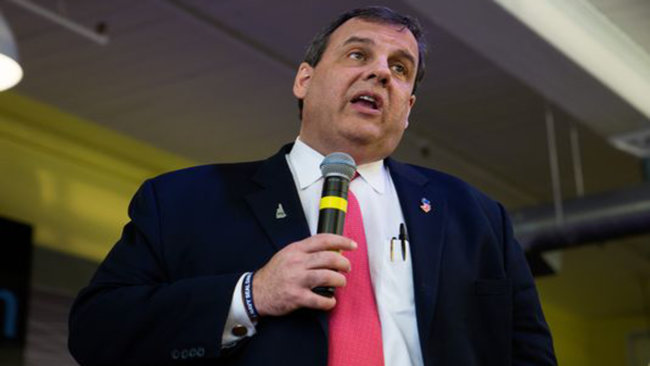Governor Christie wasn’t back in New Jersey for two days before his administration and its apologists went back on the attack on public worker pensions and health benefits.
The man who promised that he wouldn’t touch pensions in his gubernatorial run in 2009, and who staked his presidential ambitions on a bipartisan pension and benefits bill in 2011 is now touting a plan recommended by his appointed board of campaign contributors and Wall Street executives that would further degrade the benefits that are part and parcel of people’s decision to enter teaching, firefighting, police work and government administration in this state.
The latest plan, which was first unveiled last year and clarified on Thursday, calls for an end to the health plans that most New Jersey state workers get as part of their employment. Christie’s plan would move workers to the equivalent of Affordable Care Act Gold Plans which, despite their lofty name, have higher deductibles and more limited health care options for their subscribers. But the plan gets even better because no longer would health care be paid for by the state and employees; the cost would be shifted to the municipalities and school boards. Then the money that the state saves would be used to replenish (and plenish) the pension system.
Ingenious, right?
We got a further clarification on this proposal by Thomas Byrne, one of the members of Christie’s pension reform panel. And his point, in sum, is that teachers get more benefits than most workers in the private sector. Besides, they say the plan he and the panel recommended is the only way to solve this problem. Talk about reinforcing your own limited thinking.
What Byrne and his apologists don’t say is that there are many private sector workers who get far better benefits. Why can’t he compare public employee health care with those people? Because, simply, the same people calling for benefits reform are the same people who want to privatize public work and to destroy the power of the public worker unions. So comparing us to the average worker who’s been shafted over the past 40 years by Republicans and conservatives makes people angry at what we have, rather than what we have earned through legal collective bargaining. The rich keep what they have and the rest lose out. Haven’t we heard that somewhere before?
I do have to say that I agree with one of Byrne’s points, and this is likely to get me in trouble with my public worker brethren and sisteren. I think that putting a constitutional amendment that forces the state to make a full pension payment every year is a losing issue. Most New Jerseyans support their local teachers and don’t want to penalize them, but the thought of having to pay billions of dollars at the expense of other programs – which is what the opponents of this amendment will argue – will turn most voters against it.
Governor Christie has done a terrific job, and a terrible one at the same time, by turning public workers into the face of the budgetary, taxing and spending problem we have in New Jersey. It’s not right, it’s not fair and it’s a disgraceful turn away from decency and respect, but it’s the truth and Democrats need to understand that. An amendment will fail. Nix it.
Likewise, a millionaire’s tax would help, but will not raise enough money to pay for the shortfall. Reducing pension investment fees is also a necessary step, but a small one. So what to do?
A 1% tax on corporate profits. After all, it’s the business interests that have been driving educational reform since 1983, including the calls for more cooperative learning, back-to-basics content retention, tenure reform and the Common Core Curriculum Standards. Business is interested in education because schools supply their future workers, and they also have an interest in well-run towns, police forces and firefighters. So why not have them pay a greater share of the expenses? That way, all public workers could share in the proceeds and homeowners wouldn’t have to bear the burden of ever-rising property taxes. One percent is not too much to ask and any company that decides that it’s too much and leaves New Jersey would be sacrificing its highly educated labor force and would risk ridicule for running away.
Obviously I don’t have complete details and I’m sure the accountants would discover all manner of roadblocks. Plus, having corporate interests pay for things usually means they’ll want their names and logos on it. But I think this is better than having taxpayers voting on a multi-billion dollar plan that will hike their taxes. And it just might solve the problem of our underfunded school systems.
For more, go to www.facebook.com/WhereDemocracyLives or Twitter @rigrundfest
Share this content:








